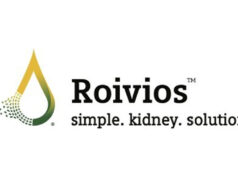 A new retrospective cohort observational study published in the journal Medicine by Maria Mirabela Manea (Carol Davila University of Medicine and Pharmacy, Bucharest, Romania) et al shows that, for thrombolysed stroke patients, the biggest risk for increased mortality is renal dysfunction, specifically chronic kidney disease (CKD).
A new retrospective cohort observational study published in the journal Medicine by Maria Mirabela Manea (Carol Davila University of Medicine and Pharmacy, Bucharest, Romania) et al shows that, for thrombolysed stroke patients, the biggest risk for increased mortality is renal dysfunction, specifically chronic kidney disease (CKD).
Previous research has shown that CKD can lead to hardening of the arteries, known as atherosclerosis, having a serious negative impact on cardiovascular health. There have also been other studies that have also suggested that renal dysfunction is a risk factor for in-hospital mortality among patients who have undergone thrombolysis for acute ischaemic stroke. Despite this, there are several different variables that can increase the mortality risk for stroke patients, which kidney dysfunction has not been evaluated against.
Explaining their study, Manea said that “we performed a retrospective observational study to establish the importance of CKD among various cardiovascular risk factors that influence the outcome of stroke patients receiving thrombolytic treatment. We used electronic medical data of a cohort of 296 acute ischaemic stroke patients who had received thrombolysis, between 2016 and 2020, at the Carol Davila National Institute of Neurology and Neurovascular Diseases.”
Manea and colleagues assessed kidney function as well as other factors, including age, sex, body mass index, obesity, hypertension, diabetes, high blood cholesterol, smoking, frequent drinking, and history of heart disease. They then used a range of different neurological scores—such as the Alberta Stroke Programme Early CT Score (ASPECTS), Barthel Index and several others—to establish the importance of each risk factor.
To assess kidney dysfunction, the study used the estimated glomerular filtration rate (eGFR), which showed that around 32% of patients had a very low score of less than 45-60 mL/min—compared to the normal eGFR value, which is typically above 90mL/min per 1.73 m2 body surface area—confirming kidney dysfunction. The researchers found that kidney dysfunction (low eGFR) was firmly associated with in-hospital death in almost all scores, and was also the biggest factor that had an impact on the neurological scores—more so than factors such as age and blood creatinine levels.
Commenting on the impact of this study, Manea concluded that “this is the first study to report the significance of CKD as a risk factor among stroke patients. The findings of this study hold notable medical significance, which can be used to improve upon current stroke management algorithms.”
The researchers also believe that incorporating kidney status into thrombolysis treatment guidelines has the potential to impact a significant number of stroke patients, and—when combined with personalised treatment strategies—can improve the safety and efficacy of thrombolysis medication in patients with kidney dysfunction.











